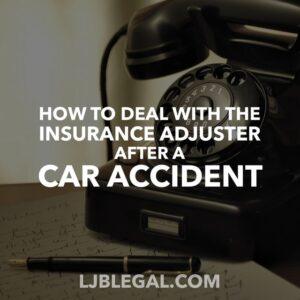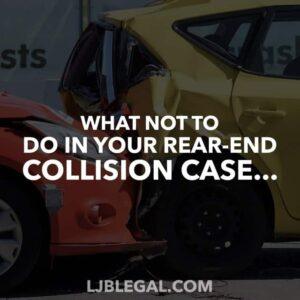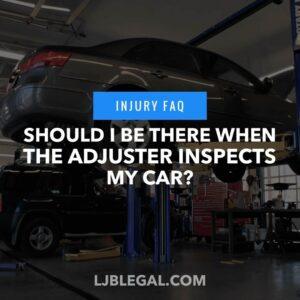
No. Under no circumstances should you be with the property damage adjuster when they take pictures of your vehicle. It is important to remember that these insurance adjusters work for the other side. They are not there to help you. As a Louisiana personal injury lawyer, I know firsthand, they are trying to pay as little as possible for both property damage and bodily injury.
It is not uncommon for them to play tricks, such as asking you to retrieve information from your car’s glove compartment in order to photograph you bending over into the car. This can be used later against you during the injury case.
We strongly advise that you have a family friend or other relative there when the adjuster examines the vehicle.
It is also important that no one talk to the adjuster or reveal details about the accident or injuries sustained.
What Should You Do When the At‑Fault Adjuster Wants to Inspect Your Car?
After a car accident, things feel chaotic. Between checking for injuries, arranging a ride, and dealing with stress, you get a call from the at‑fault driver’s insurer. Their adjuster wants to inspect your car. They may even ask to meet you in person. This seems simple, but your decision here can affect how much you recover. With around 6 million car accidents each year in the U.S., it’s more important than ever to know your rights and act wisely.
When the at-fault adjuster requests an inspection, notify your own insurer first. Avoid giving statements or meeting alone. Let your insurer coordinate the inspection or have a trusted body shop present. Remember, the at-fault adjuster works for their company, not for you, so protect your rights throughout the process.
Right After the Crash: Confusion, Stress, Decisions
The moments after a wreck can be overwhelming. You exchange information, talk to police, and check your car’s condition. Then comes the insurance process. You must notify your own insurer and deal with the at‑fault party’s insurer. That’s where many make costly mistakes.
Why Property Damage Claims Matter
A smashed bumper may look minor compared to injuries, but the property damage claim is often the first place the insurance company tests your claim’s value. How it’s handled can influence how the insurer treats injury claims later. The other side’s adjuster is not your ally; they’re working to protect their company—not your interests.
The At‑Fault Adjuster’s Role: Whose Side Are They On?
Here’s a hard truth: the at‑fault driver’s adjuster works for the insurance company, not you. Their job is to cut costs wherever possible. They are trained to push your claim down, not lift it up.

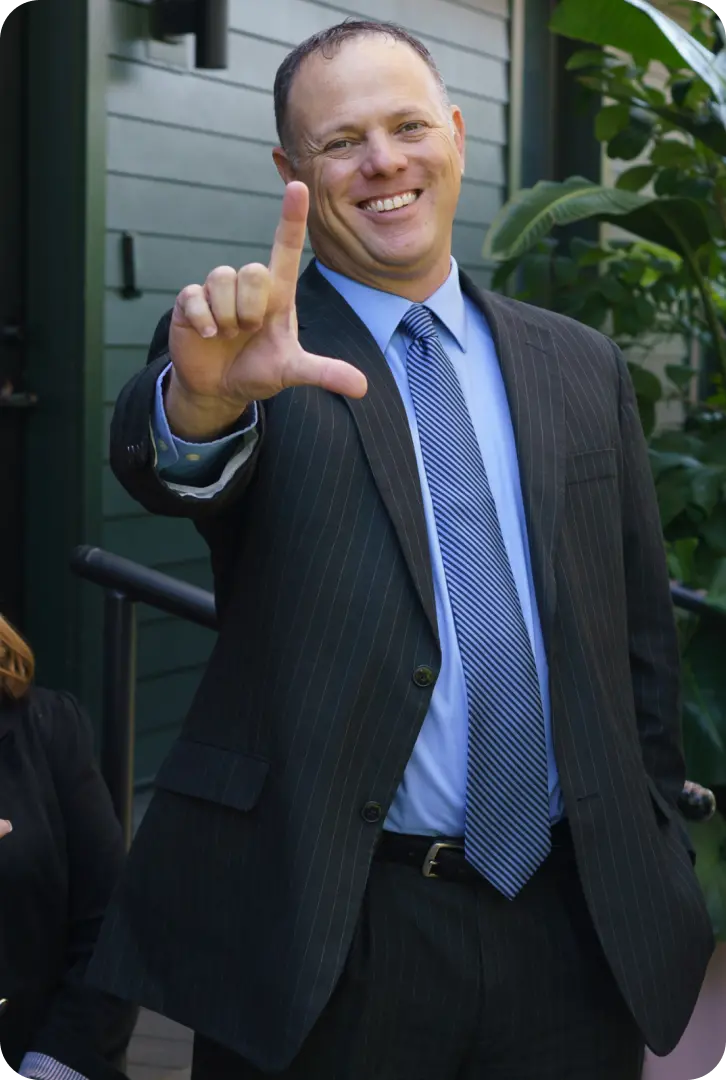
We GET IT DONE
Clients trust us to handle their case properly and effectively
FREE Confidential Case Review (985) 240-9773What Does the At‑Fault Adjuster Look For During a Property Inspection?
The at-fault adjuster inspects your car to minimize the insurer’s payout. They assess crash damage, search for prior wear or unrelated issues, and may question you for statements implying shared fault. They often use software to lower repair estimates and may downplay injuries based on visible vehicle damage.
When the opposing insurer’s adjuster inspects your car, they’re doing more than snapping photos. They have an agenda. Understanding it helps you protect your interests.
Their Main Goal: Pay as Little as Possible
The adjuster’s priority is to reduce the insurer’s liability. Every dollar they save strengthens their bottom line. From repair parts to whether your car is totaled, they look for ways to cut your payout.
What They Examine: Damage, Wear, and Past Conditions
During inspection, they’ll note where the car was hit and how badly. They also search for signs of past damage, general wear and tear, or anything suggesting the accident wasn’t the sole source of the damage. They often use cost‑estimating software favoring lower costs or aftermarket parts.
They Also Ask Questions—Carefully
The adjuster might chat with you about the accident while examining your car. They listen for statements that contradict the police report or hint at shared fault. A casual comment can be twisted against you later.
How They Use This Against Your Injury Claim
One subtle tactic: they may use the observed vehicle damage to argue the crash was minor. That lets them claim you likely couldn’t have serious injuries. If they ask “How are you feeling?” avoid saying “fine.” Many serious injuries appear later. It’s safer to reply, “I’m being evaluated by a doctor.”
Your Insurer vs. The Other Insurer
Your own insurer is contractually bound to you. The at‑fault insurer has no duty to you. Their loyalty is to their company. That basic difference is why you must be careful with any direct dealings with the other side.

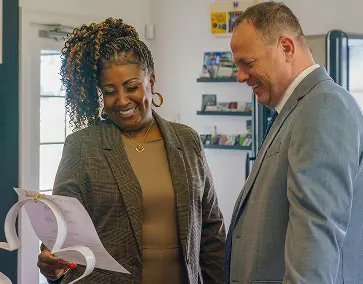
We DO THE RIGHT THING
The correct choice – always – is to do the right thing.
FREE Confidential Case Review (985) 240-9773Should You Meet the At‑Fault Adjuster in Person?
This is the key decision many people face. It may seem helpful to point out damage in person, but the risks often outweigh the benefits.
It’s usually best not to meet the at-fault adjuster in person. Instead, let your repair shop or insurer handle communication. Meeting directly can risk saying something that weakens your case. If a meeting is unavoidable, consult a lawyer first and limit discussion strictly to visible vehicle damage.
Why It Usually Makes Sense to Avoid a Meeting
In most cases, don’t meet the adjuster. You can make your car available at a repair shop or your home without being present. That way, you avoid saying anything that could hurt your case. It forces the adjuster to rely only on the damage and the police report—not on what you might say.
The Adjuster May Be Watching
If you do meet in person, remember this: the adjuster is not just looking at your car. They may be quietly watching how you move. Something as simple as reaching into your trunk, bending over, or stepping over a curb can be used later to argue that you’re “not really injured.”
They may take notes or even record video. That footage can be used to challenge your claim. It doesn’t matter if you were having a good day or just pushed through the pain. If they see you move in a way that looks normal, it could hurt your case.
This is one more reason to stay cautious. If a meeting must happen, talk to a lawyer first and avoid doing anything that could be misread or used against you.
When You Might Consider Meeting (With Caution)
There are rare cases where meeting is reasonable, if damage is obscure, or a mechanic can’t clearly explain something.
If you choose to meet, do so only if:
- You’ve already talked with a personal injury lawyer.
- You agree in advance to only talk about the physical damage, not cause, injuries, or settlement.
- You refuse to give any recorded statements or answer questions about fault.
A Safer Option: Let Others Handle It for You
The most secure approach is to let your repair shop or your own insurer (if you have collision coverage) coordinate with the at‑fault insurer. That keeps you out of direct conversations with their adjuster and reduces risk.
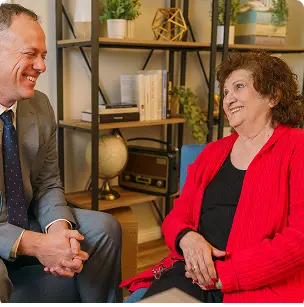

We ARE TRANSPARENT
We don’t play games and we don’t hide the ball.
FREE Confidential Case Review (985) 240-9773What Are the Risks of Talking Directly With the At‑Fault Adjuster?
You may need to talk to the adjuster about your property damage claim. But, this is risky because anything you say can be used to reduce or deny your claim. Adjusters are skilled and will use your words against you whenever possible. Common pitfalls include unintentionally admitting fault, giving inconsistent statements, minimizing injuries, or accepting low settlements. Always consult an attorney before giving recorded statements or signing any documents from the insurer.
Admitting Guilt Without Meaning To
A simple “I’m sorry this happened” might end up in their notes as an apology implying fault. Adjusters often use leading questions intended to shift blame. Even a small admission can hurt your recoveries, especially in Louisiana’s fault laws.
Inconsistencies or Change in Story
After trauma, memory is imperfect. If you tell the adjuster one version and later recall details differently, they can argue your story isn’t trustworthy. What you intended as clarification could be used against you.
Harming Your Injury Claim Over Damage Talk
If you say “I’m fine” when asked how you feel, and later develop injuries like whiplash, the insurance company will cite your earlier comment. That can endanger coverage for medical bills and future treatment.
Low‑Ball Settlement Offers Under Pressure
Adjusters often try to settle early. They may offer a low amount during inspection, hoping you accept.
Recorded Statements and Releases Are Dangerous
Never agree to give a recorded statement without a lawyer present. They are designed to trap you. Also, never sign any release offered right away. Many releases include clauses that give up future rights to injury claims stemming from the same accident.
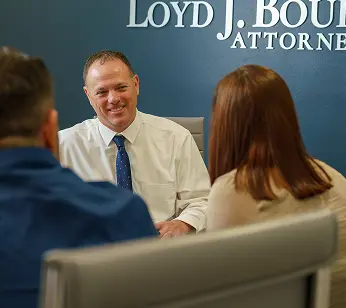
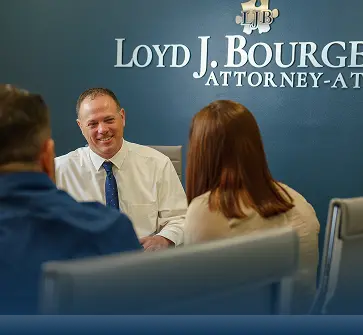
We ARE COMPASSIONATE
Emotionally intelligent listeners with positive attitudes.
FREE Confidential Case Review (985) 240-9773How Can You Prepare for a Property Damage Inspection?
To prepare for a property damage inspection, start by documenting your vehicle with detailed photos and video. Gather key documents like the police report and insurance details. Review your policy to understand your coverage. Get independent repair estimates, and consult a personal injury lawyer early if you’ve experienced any discomfort or injury.
Whether or not you meet the adjuster, good preparation is your best protection. Do these steps early to anchor your claim in strong evidence.
Document Everything: Photos, Videos, Notes
Before anyone inspects your car, document it thoroughly. Take wide and close-up photos from every angle under good lighting. Record a video walking around the car. Document personal items damaged inside too.
Collect Key Documents: Police Report, Witness Info, Insurance Details
Get a copy of the crash report once it’s available. That’s an objective record. Confirm names, contacts, and insurance details for the other driver. If you have witnesses, get their contact info.
Know Your Own Policy and Coverage
Read your auto insurance policy carefully. Know whether you have collision coverage. If so, your insurer can handle repairs and subrogate (seek payment) from the at‑fault party. Understanding your deductibles and rights helps you make smarter decisions.
Get Independent Repair Estimates
Don’t rely only on the insurer’s shop. Find a trusted body shop and get one or two independent repair estimates. This gives you a benchmark to compare against what the adjuster offers.
Talk to a Personal Injury Lawyer Early
If you’ve suffered any pain, even mild discomfort, consult a Louisiana car accident lawyer from LJBLegal right away. They can advise how to deal with the at‑fault insurer, protect both your property and injury claims, and handle communications for you.
What If You Have to Meet the Adjuster Anyway?
If meeting the adjuster is unavoidable, follow this playbook strictly. It helps you stay in control.
Before the Adjuster Arrives:
Gather your documents, police report, repair estimates, photos, but don’t offer them unless asked. Decide your boundaries. You will only point out physical damage. You will not talk about cause, injuries, or settlement. When the adjuster arrives, stay polite but firm. Let them lead. Answer with short factual replies. If they press you on cause, say refer to the report. If they ask about pain, say “I am being evaluated by medical professionals.” Do not guess, apologize, or volunteer extra. Silence is your ally. The less you reveal, the less they can use against you.
What’s the Best Way to Protect Your Property and Injury Claim?
Whether to meet the at‑fault adjuster during your car’s damage inspection is a strategic decision with real consequences. The adjuster is there to protect the insurer’s interest, not yours. You risk being tricked into admitting fault, undermining injury claims, or accepting too little for repairs.
Your strongest position is built through careful preparation and measured communication. Often, the safest route is to avoid face‑to‑face meetings and let a trusted shop or your lawyer coordinate inspections. By documenting damage, getting independent estimates, understanding your policy, and seeking legal advice early, you turn from a reactive victim into a prepared advocate. You increase your chances of securing full and fair compensation, for your car damage and any injuries you may have suffered.
Not sure what to do next? Talk to the team at LJBLegal. Our attorneys know how to deal with insurance companies and protect your rights from day one. We’ll help you avoid costly mistakes and fight to get you the full compensation you deserve. Contact us today at 985-240-9773 for a free, no-pressure consultation.
| Related Links: |

